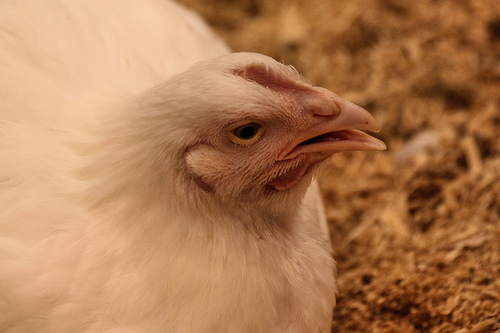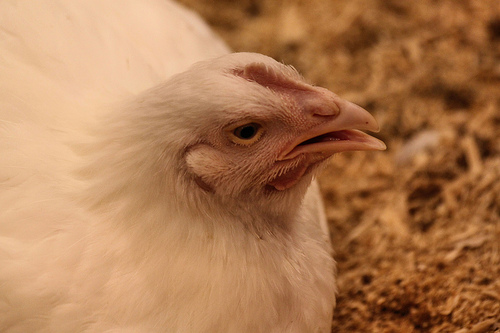 Ahhh, glad I took off a load of renewable energy!Photo courtesy KM&G-Morris via FlickrWhen Bloom Energy unveiled its long-awaited fuel cell earlier this year to much media attention and announced it had installed the 100-kilowatt devices at Google, eBay, and other Fortune 500 companies, there was sniping in some quarters about greenwashing as the Bloom Energy Servers ran on natural gas.
Ahhh, glad I took off a load of renewable energy!Photo courtesy KM&G-Morris via FlickrWhen Bloom Energy unveiled its long-awaited fuel cell earlier this year to much media attention and announced it had installed the 100-kilowatt devices at Google, eBay, and other Fortune 500 companies, there was sniping in some quarters about greenwashing as the Bloom Energy Servers ran on natural gas.
But generators can also use biogas and on Tuesday a Bloom competitor, FuelCell Energy, announced the sale of a 1.4-megawatt chicken poo-powered fuel cell to an egg farm in California’s Central Valley.
Olivera Egg Ranch will install an anaerobic digester that will strip methane, a potent greenhouse gas, from untold pounds of poultry poo that usually are stored in a waste lagoon. Instead of escaping into the atmosphere and contributing to global warming, the methane will power the fuel cell, which will generate enough electricity to supply the ranch’s entire operations.
In a double play for the environment and the ranch owner’s pocketbook, the heat that is a byproduct of the fuel cell’s operation will be used by the anaerobic digester, forgoing the need for a combustion-based boiler. In other words, Olivera’s eggs — it packs 14 million cartoons annually — will be produced with virtually greenhouse-gas free electricity.
Most farming operations that have deployed anaerobic digesters — usually to process cow manure — connect them to pipes that ship the methane gas to a distant utility power plant where it is used as fuel.
Fuel cells take distributed energy to the countryside, generating electricity on-site and thus avoiding the need for transmission infrastructure as well as the greenhouse gas emissions of a central natural gas-fired power plant.
“My waste disposal costs will decrease as will my power bill as the poultry operation will continually generate the fuel needed to create electricity, reducing the amount of electricity needed from the electrical grid,” ranch owner Ed Olivera, said in a statement.




